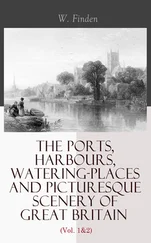The judge was Sir James Willes, a tall man with luxuriant dark hair, eyebrows and whiskers, a prominent nose and a melancholy, harsh stare. He was reserved and courteous in manner, and his voice had an Irish lilt - he was born in Cork, to Protestant parents, in 1814. Once he and the twenty-four magistrates serving as jurors had taken their seats, Constance was brought in. She wore a black worsted veil, a plain black cloak, a black bonnet adorned with glass beads, a pair of black gauntlet gloves. She spoke briefly to Rodway, at the back of the dock, then lifted her veil and came to the front. Her face, judged the Daily Telegraph reporter, was 'broad, full, uninteresting', with an 'expression of stupid dulness'. 'She has full eyes, in which at times there is a look as if she was suspicious of those surrounding her, and which may be best described as the glance of a person who is afraid of something.' The News of the World described her as 'dull and heavy, her forehead low, her eyes small and her figure tending to plumpness, and there being an entire absence of anything like vivacity in her air or countenance'.
The clerk of the court read out the charge and asked, 'How say you, Constance Emilie Kent, are you guilty or not guilty?'
'Guilty,' she said, in a low tone.
Willes turned to her. 'Are you aware that you are charged with having wilfully, intentionally and with malice killed your brother?'
'Yes.'
The judge paused. 'And you plead guilty to that?' Constance was silent.
After a few moments Willes pressed her: 'What is your answer?' Again she said nothing. Despite her determination to plead guilty, silence and secrecy seemed still to exert a pull on her.
'You are charged with having wilfully, intentionally and with malice killed your brother,' repeated Willes. 'Are you guilty or not guilty?'
Finally she replied: 'Guilty.'
'The plea must be recorded,' said Willes. The room was perfectly quiet as the clerk wrote it down.
Coleridge rose and addressed the court on Constance's behalf. 'I desire to say two things before the sentence of the court is passed.' He was a lean man with a long face, sharp, sympathetic eyes, and a melodious voice. 'In the first place the prisoner solemnly, in the presence of Almighty God, and as a person who values her own soul, desires me to say that the guilt is hers alone, and that her father and others, who have so long suffered most unjust and cruel suspicions, are wholly and absolutely innocent. Next she desires me to say that she was not driven to act, as has been asserted, by any unkind treatment in her home. She met nothing there but tender and forbearing love, and I hope I may add not improperly that it gives me a melancholy pleasure to be made the organ of these statements, because on my honour I believe them to be true.'
Coleridge sat down. The clerk of the court asked Constance if she could give any reason why a sentence of death should not be passed upon her. She said nothing.
Judge Willes put on his black cap, in preparation for delivering the death sentence, and addressed Constance. 'I can entertain no doubt, after having read the evidence, and considering it in connexion with your three confessions of crime, that your plea is the plea of a guilty person. You appear to have allowed feelings of jealousy -' 'Not jealousy!' Constance burst out. The judge continued '- and anger to have worked in your breast until at last they assumed over you the influence and power of the evil one.'
At this point Willes' voice broke. As he paused, unable to speak, Constance glanced up at him, and on seeing his distress was herself overcome. She turned away from the judge, trying to hold back her tears. Willes was now openly weeping. He went on with difficulty. 'Whether Her Majesty, with whom the prerogative of mercy rests, may be advised to exercise that prerogative in your case on account of the fact of your youth at the time when the murder was committed, the fact that you are convicted on your own confession, and the fact that that confession removes suspicion from others, is a question which it would be presumptuous in me to answer. It now well behoves you to live what is left to you of life as one about to die, and to seek a more enduring mercy by sincere and deep contrition, and by a reliance on the holy redemption.' He passed the death sentence, finishing with the words, 'And may God have mercy on your soul.'
Constance stood utterly still for a moment, then pulled down her veil. She was led out of the courtroom by a female prison warder, whose face was wet with tears. The trial had lasted twenty minutes.
Constance's cry 'Not jealousy!' was the only spontaneous statement she made in public over the months of her confession and trial. She would admit to anger, she would admit to murder, but she refused to agree that she had experienced envy. Perhaps she protested too much: if she had killed Saville out of anger, she could imagine herself as a heroic avenger of her natural mother and of William; but if out of jealousy, she was self-centred, childish, vulnerable. If she was jealous, she did not merely rage against her stepmother and her father; she wanted their love.
As soon as the death sentence was passed, 'broadside' ballads about the Road Hill murder were produced. These were formulaic, single-sheet accounts of crimes, published quickly and cheaply in large quantities, then sung and sold by street vendors. Their role had been largely usurped by the newspapers, which now reported crime just as cheaply and more fully, to an increasingly literate population. Most broadside ballads were written in the first person, in the form of a confession and lament:
His little throat I cut from ear to ear,
Wrapped him in a blanket and away did steer
To the water-closet, which soon I found,
In the dirty soil then I pushed him down.
For all Constance's denials, the balladeers were clear about her motive:
My father married a second wife,
Which filled my bosom with spleen & strife.
In the words of another, she was 'jealous of her mother-in-law'. More than one balladeer described Constance as haunted by Saville's ghost: 'Not night nor day no rest I get, in my dreams my brother see.' Some conveyed a lascivious excitement at the surrender that she was expected to make on the gallows:
I see the hangman before me stand,
Ready to seize me by the law's command. . .
Oh, what a sight it will be to see,
A maiden die on the fatal tree.
But the broadside publishers were jumping the gun - the public was clamouring for Constance Kent to be spared the death sentence. A Devonshire magistrate came forward to testify to the madness of the first Mrs Kent, claiming that he and other neighbours of the Kents had witnessed her outbreaks of lunacy in the 1840s. On the Sunday after Constance's conviction, the Reverend Charles Spurgeon, the most popular preacher of his time, delivered a sermon to more than four thousand people at the Metropolitan Tabernacle, Elephant & Castle, which compared Constance Kent's crime to that of Dr Edward Pritchard of Glasgow, another murderer convicted that month. Pritchard was arrested when traces of poison were found in the bodies of his wife and her mother, who had both died soon after discovering his liais on with a fifteen-year-old servant girl. He did not confess. Even when he was found guilty of murder, he tried to blame the killings on others: 'I feel now as though I had been living in a species of madness since my connection with Mary McLeod.' Constance, by contrast, had made a voluntary admission of guilt in order to lift suspicion from those close to her. The Reverend Spurgeon argued that she should be shown mercy. Rowland Rodway, Dr Bucknill, and the Reverend Wagner joined in pleading with the Home Secretary not to execute her, as did Justice Willes.* The newspapers were in overwhelming agreement. For a cold-blooded child-murderer, Constance had aroused an extraordinary level of sympathy. Within days Sir George Grey recommended to the Queen that her sentence be commuted to one of penal servitude for life, which was usually a twenty-year term.
Читать дальше












